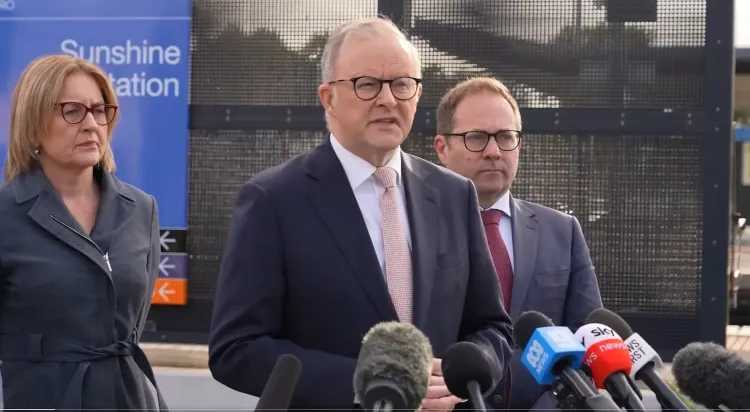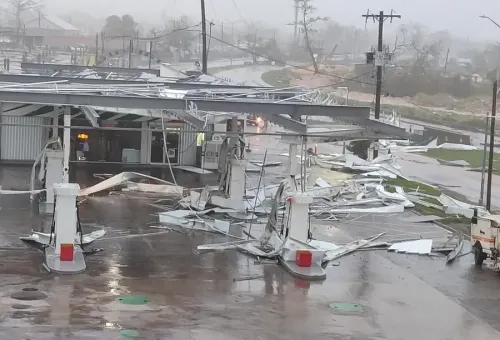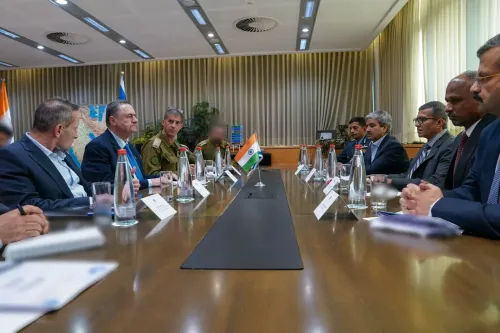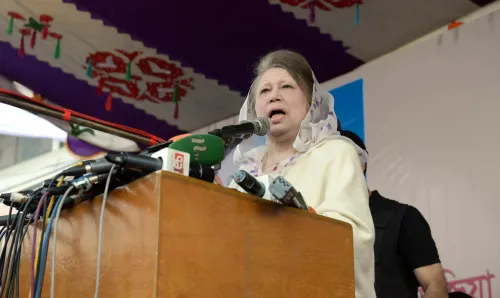Australian PM Declares Election 'Open' as Polls Indicate Rising Support for Government

Synopsis
Key Takeaways
- Albanese emphasizes no complacency for Labor.
- Polls show Labor with a lead over the Coalition.
- Voters will use a preferential voting system.
- Coalition aims for a crime crackdown if elected.
- Election date set for May 3, early voting starts soon.
Canberra, April 21 (NationPress) Australian Prime Minister Anthony Albanese has stated that the forthcoming general election is still "open" despite surveys indicating that his Labor Party is poised to secure a second term in office.
After a three-day pause during the Easter holiday, both PM contenders -- the incumbent Albanese and opposition Coalition head Peter Dutton -- resumed their campaigning on Monday in anticipation of the May 3 election.
The campaign's revival occurred just one day before early voting commences nationwide on Tuesday, providing millions of Australians the chance to avoid lengthy lines while fulfilling their voting obligations, and following several new opinion polls revealing that Labor has broadened its lead over the Coalition among the electorate.
The latest Newspoll released by News Corp Australia on Sunday indicated a 52-48 advantage for Labor over the Coalition on a two-party preferred basis.
A different poll from the Australian division of UK firm YouGov published on Friday showed Labor leading 53-47, marking the government's strongest two-party result in the firm's survey in 18 months, as reported by Xinhua news agency.
Labor triumphed in the 2022 general election with a 52.13-47.87 score against the Coalition on a two-party basis.
When asked on Monday if Labor is in a favorable position to win the election, Albanese referenced lessons learned from 2019, when polls widely predicted a Labor win, only for the Coalition to secure a third term, an outcome celebrated by then-PM Scott Morrison on election night as a "miracle".
"There’s no complacency from my camp," Albanese told reporters in New South Wales.
"This election is certainly open for grabs."
Dutton, who announced on Monday that a Coalition government would allocate 750 million Australian dollars ($482 million) for a crime crackdown, which includes a national registry of sex offenders, also drew attention to the 2019 election when asked about the polls.
"Not many were predicting a Coalition victory in 2019. Many Australians are busy with their lives and may not even be aware that an election is approaching," he stated in Melbourne.
"We can definitely win the election from this point."
When Australians go to voting stations nationwide, they will do so on a preferential basis, assigning their first choice to the candidate in their local area whom they wish to represent them in the lower house of the federal parliament.
If no candidate in an area receives a majority of first-choice votes, those with the fewest votes are eliminated and their votes are redistributed based on the preferences indicated by individual voters.
Australia is geographically divided into 150 electorates, each containing approximately the same number of voters. Currently, Labor holds 77 seats in the lower house, in contrast to the Coalition's 53. Some electorates feature as many as 13 candidates competing in the election.
The Newspoll published on Sunday revealed that 34 percent of respondents intend to vote for their Labor candidate as their first preference, the highest since January 2024, while 35 percent favor the Coalition, and the YouGov poll showed both major parties tied at 33 percent.
Traditionally, Labor garners fewer first preference votes compared to the Coalition but performs better on preferences. In 2022, Labor received 32.5 percent of first preference votes, versus 35.7 percent for the Coalition, yet benefitted from over 85 percent of votes from the Greens, Australia's third-largest party, flowing its way.









